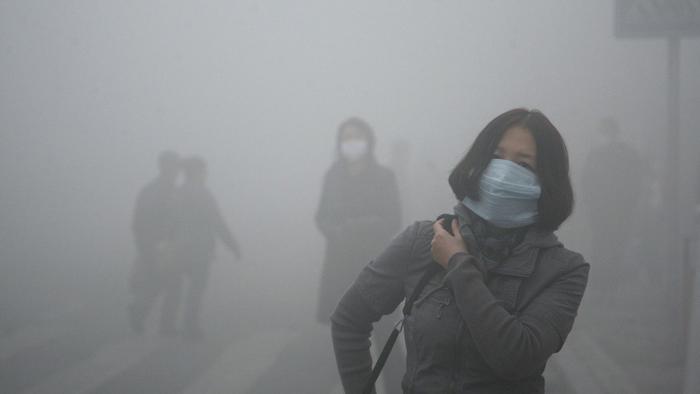As air quality in China continues to deteriorate, the government is trying various solutions to clean up the environment. Among these is a proposed new law which would limit the sale of coal, the biggest polluter in China. From Bloomberg:
The nation’s government is examining a draft law that will prohibit the production, import and sale of coal that doesn’t meet quality standards, the State Council Legislative Affairs Office said on its website today. It’s also seeking to cut the use of coal in China’s energy mix, according to the statement.
China, the world’s second-largest economy, is the largest producer and importer of coal, according to the U.S. Energy Information Administration. It’s also the biggest emitter of greenhouse gases that cause rising sea levels, droughts and floods, the World Bank says. China has moved to address environmental damage that’s a byproduct of its breakneck economic growth and has triggered social unrest.
The draft law air-pollution prevention law also encourages local governments to promote clean energy production and use and to develop so-called clean coal technology, according to the statement.
The State Council is seeking feedback on the draft law until next month, according to the statement. [Source]
As Isabel Hilton writes for ChinaFile, the consequences of poor air quality in China is now “expressed in human suffering, in impaired development, in remediation costs, in lost days, and in lower quality of life”:
Anyone who lives in north China understands that the air quality that they endure is potentially hazardous. There are other environmental hazards to health that have been less obvious or less widely understood, but that emerge in patterns of illness among populations in certain areas: the cancer villages that can be identified, particularly around chemical industry installations, for example, or elevated levels of lead that are found in children in certain areas, as a result of battery production or simply proximity to coal-fired power generation.
Lead poisoning can cause damage to the liver and kidneys, as well as permanent intellectual and development disabilities, and children up to the age of seven are particularly vulnerable because of their immature central nervous systems.
China’s health statistics reveal that the country ranks second in the world for lung disease and 12th for lung cancer. Chinese people also suffer from the world’s third highest rates of stomach cancer and the third highest rates of liver cancer, ill health that is highly likely to have environmental causes. [Source]
Public anger at pollution has been one of the major forces driving the government’s recent efforts to ameliorate the situation. But as Julie Makinen writes for the Los Angeles Times, the results may not be substantive enough for China’s growing middle class, laying the groundwork for an escalating political clash:
In March, Premier Li Keqiang said China would “declare war” on pollution, acknowledging growing public anger over unchecked industrialization that has defiled the country’s skies, water and soil. The government has outlined plans to spend $275 billion on efforts to reduce air pollution between 2013 and 2017.
But as the effort gets underway, a key question facing Communist Party leaders is whether imposing strict anti-pollution measures from the top down will be enough. Cities and nations that have made the greatest progress in tackling environmental crises have been open, pluralistic systems responsive to citizen demands for change.
The countries that have been successful “have all been democratic, constitution-based societies,” said Donald Worster, an environmental historian at the University of Kansas who is now helping establish an ecological history center at People’s University in Beijing.
Environmental advocates are closely watching to see whether China can become the first authoritarian country to make significant progress on a cleanup, or whether environmental degradation might become a formidable driver of political change. [Source]
Read more about China’s battle against climate change, via the University of Nottingham’s China Policy Institute’s blog. Read more about environmental activism in China, via CDT.








